Concordia Luminis: Music as medicine, light for lives
Writer: Wang Jingli | Editor: Zhang Zhiqing | From: Original | Updated: 2025-05-26
Across cultures and history, music has served as a powerful tool for easing pain, soothing stress, and restoring hope. At The Chinese University of Hong Kong, Shenzhen (CUHK-Shenzhen), one initiative is harnessing this universal language to bring light to those in need.
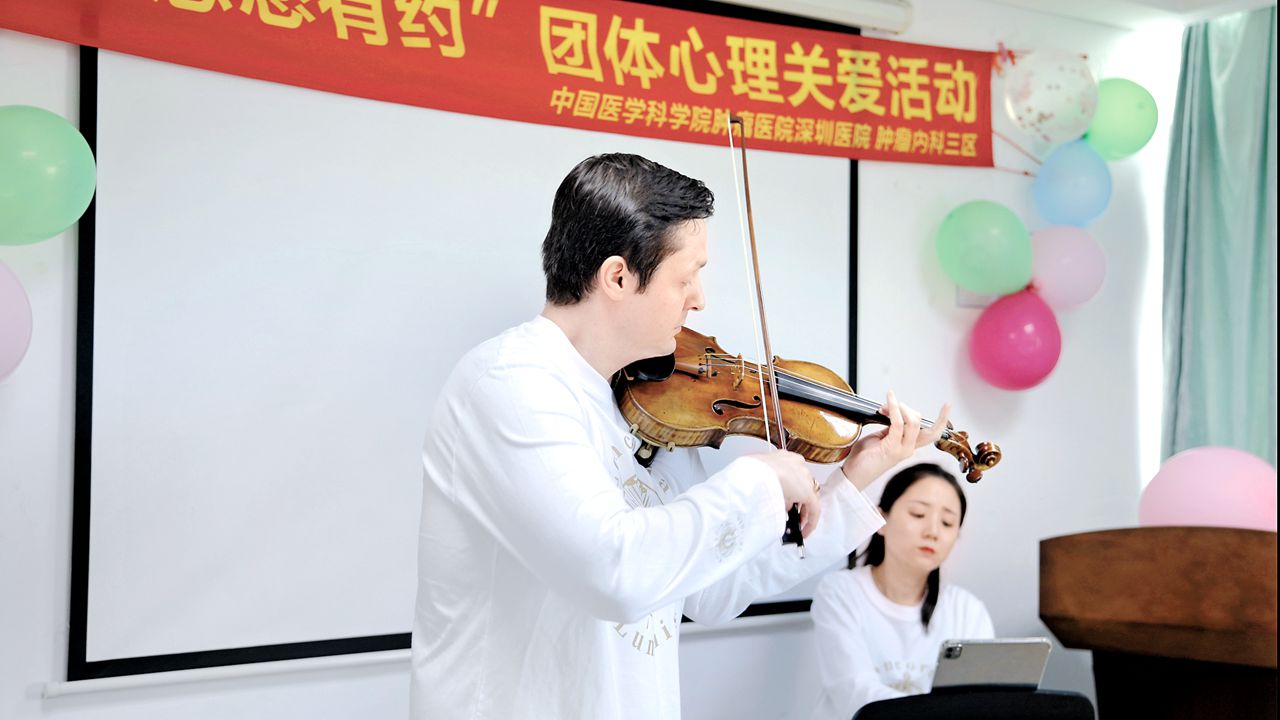
Stanislav Pronin (L) and Liu Xiaoya perform at the Cancer Hospital Chinese Academy of Medical Sciences, Shenzhen Center in Longgang District on May 16. Photos courtesy of the interviewees
Established in 2024, Concordia Luminis (Latin for “Harmony of Light”) aims to bring hope and warmth to society through the power of art and knowledge. Melodies become medicine, and every note carries the potential to ignite joy, connection, and healing in darkened corners of the human experience.
How it began
Founded by Stanislav Pronin, a professor of violin at the CUHK-Shenzhen School of Music, and Tian Siyuan, a lecturer at the CUHK-Shenzhen School of Humanities and Social Science, the Concordia Luminis non-profit organization illuminates lives through music and interactive events while raising funds for those in need.
The initiative is dedicated to delivering high-quality musical performances and interactive educational programs to communities. It also provides support for disadvantaged groups and workers in newer types of jobs, such as car-hailing drivers and delivery personnel, through music.
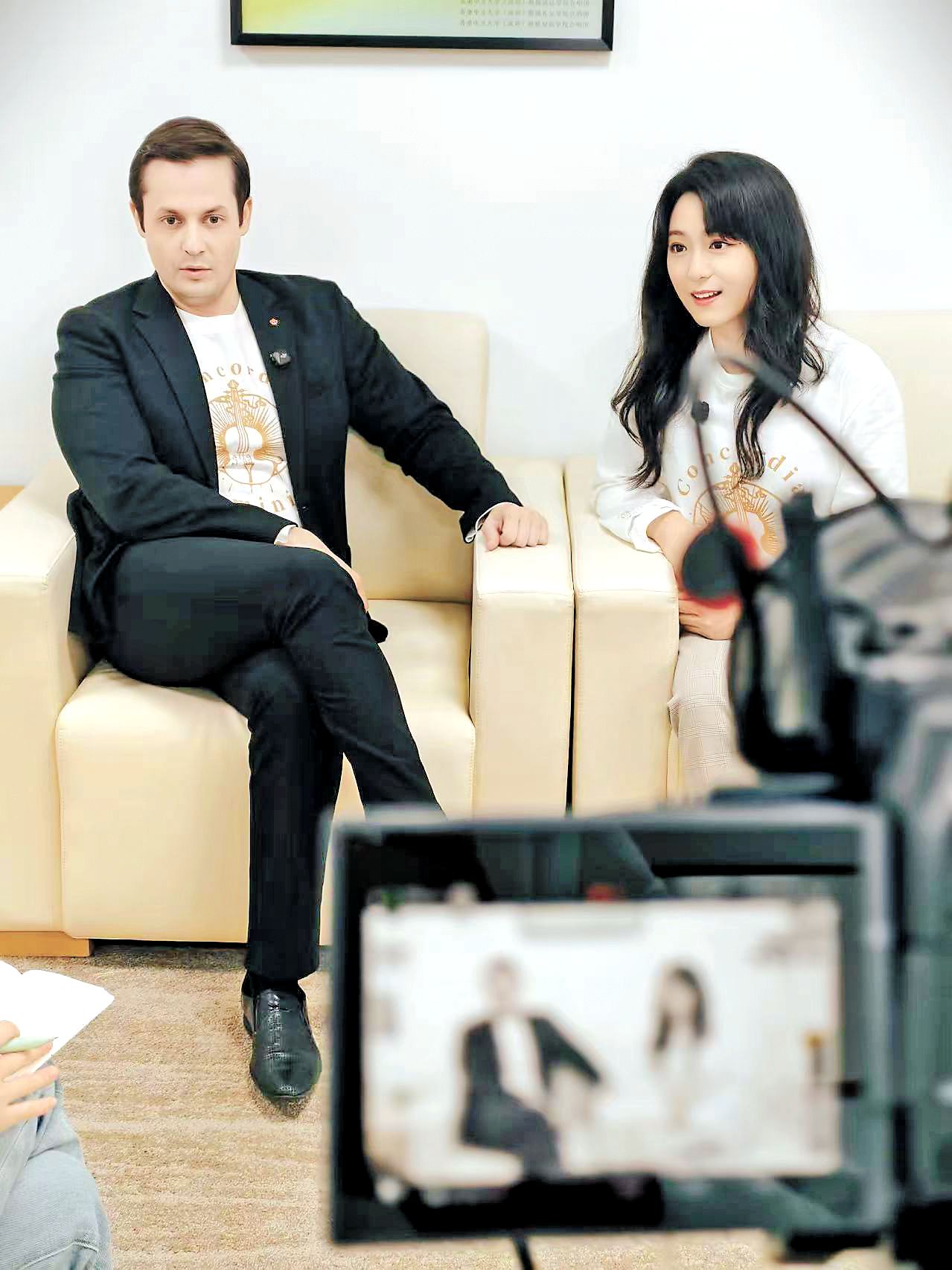
Stanislav Pronin (L) and Tian Siyuan, founders of Concordia Luminis, are interviewed by Shenzhen Daily on May 14.
The founders, united by their passion for philanthropy, launched the initiative after meeting at the university. Tian has been involved in charity work since her junior high school days, so it was a natural progression for her. Pronin had long dreamed of establishing an organization that brings light and hope to those who need it most.
So far, Concordia Luminis has successfully held events at several local hospitals, including Shenzhen Children’s Hospital and the Cancer Hospital Chinese Academy of Medical Sciences, Shenzhen Center.
The latest performance took place May 16 at the Cancer Hospital Chinese Academy of Medical Sciences, Shenzhen Center in Longgang District.
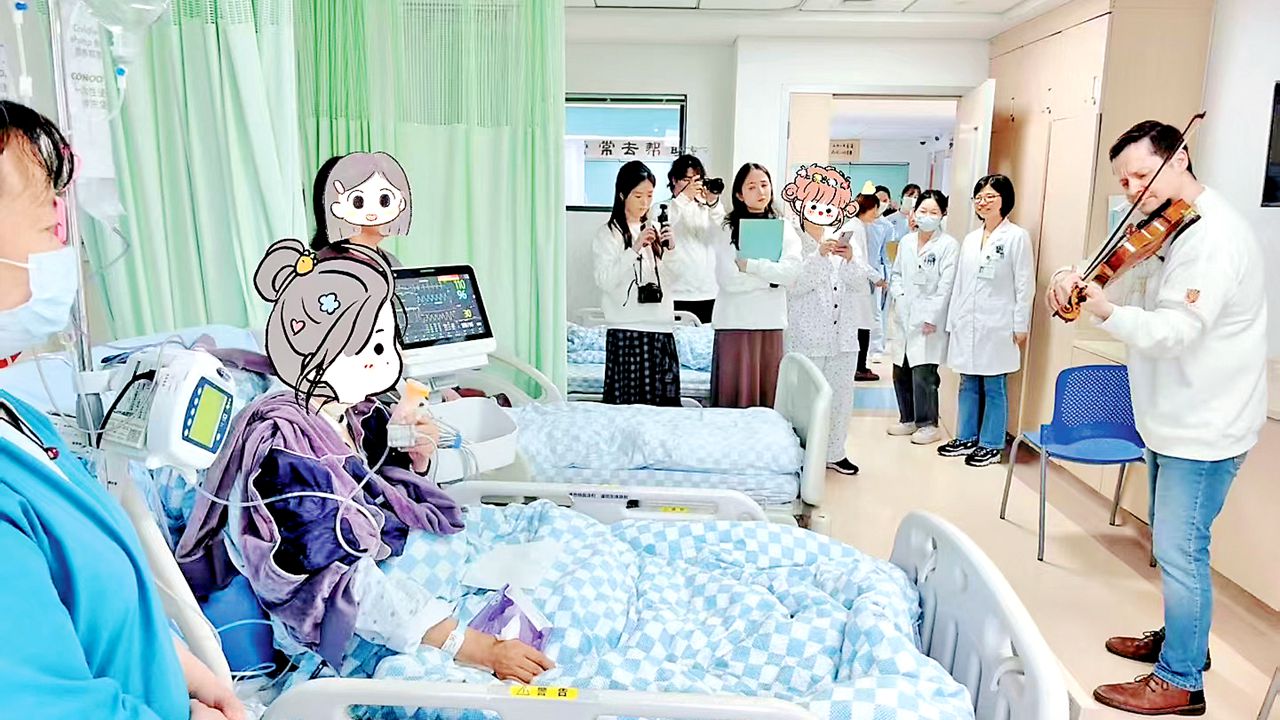
Stanislav Pronin (R) performs for bedridden patients at the Cancer Hospital Chinese Academy of Medical Sciences, Shenzhen Center on Feb. 26, 2025.
Moving forward, the team plans to expand their reach by performing in residential communities and rural areas, particularly for “left-behind children” — those whose parents have migrated to cities for work and are often left with grandparents or other extended family members.
Additionally, they aim to collaborate with Shenzhen Project Care and government partners to facilitate online donations, making it easier for the public to support their cause.
Collective participation
The Concordia Luminis initiative actively involves students and faculty from CUHK-Shenzhen, fostering a spirit of service through music and community engagement.
Liu Xiaoya, a piano lecturer at the CUHK-Shenzhen School of Music, has performed in multiple events. “I’d participated in similar charity programs while studying music in the U.S. I really like the idea, so when I was invited to join I didn’t hesitate,” she said. “Music has healing power, and I hope to touch more hearts through it.”
Chen Xiao, a music major, believes music offers solace and strength. “Just as our theme suggests, we want to bring warmth and light to patients through our performances,” she shared.
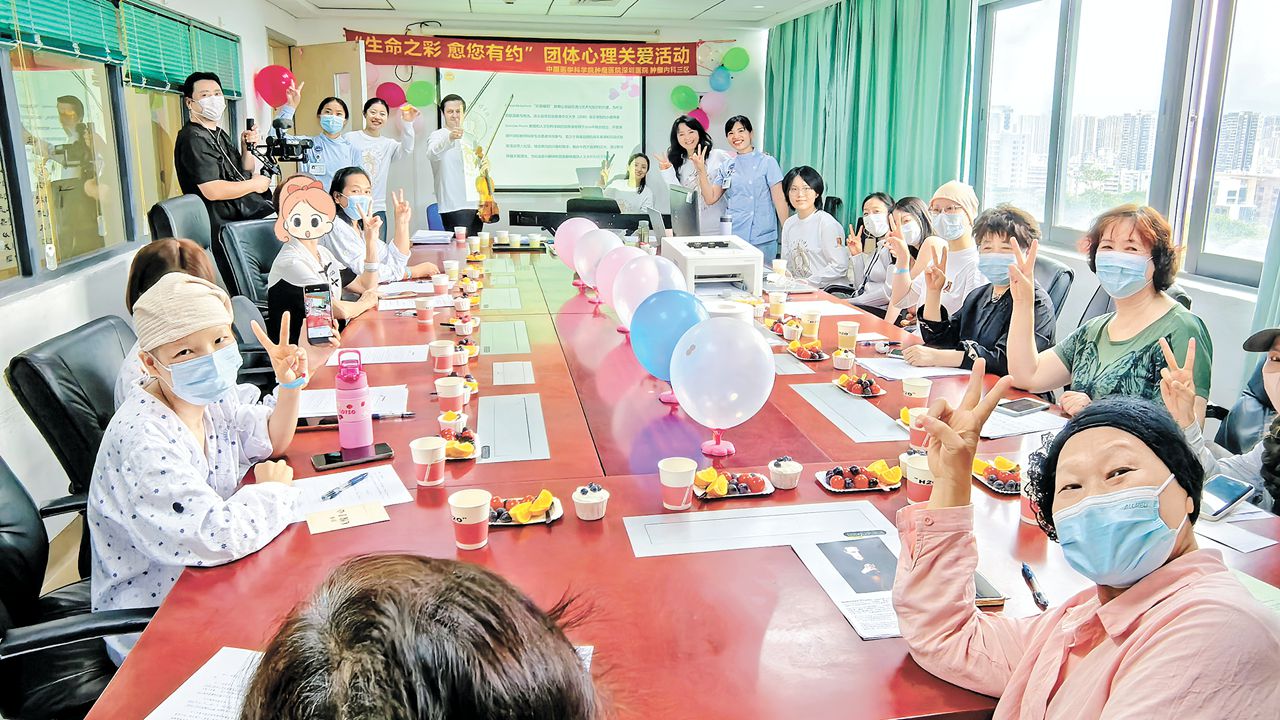
Concordia Luminis members participate in a monthly counseling event at the Cancer Hospital Chinese Academy of Medical Sciences, Shenzhen Center on Feb. 26, 2025.
For Zeng Zishan, another music student, the initiative’s impact became clear when patients expressed how the music lifted their spirits. “Hearing their gratitude made me realize how meaningful this is — it brings joy to those who can’t attend concerts,” she reflected.
Zhang Yaxi, a music major at CUHK-Shenzhen, draws inspiration from her mother, a psychologist who has participated in numerous charitable counseling programs. “I’m grateful for this opportunity to bring hope to those in need through music,” she said.
According to Tian, she wants to encourage student participation to cultivate socially responsible citizens. “We want students to excel academically while also applying their skills to serve society,” she explained.
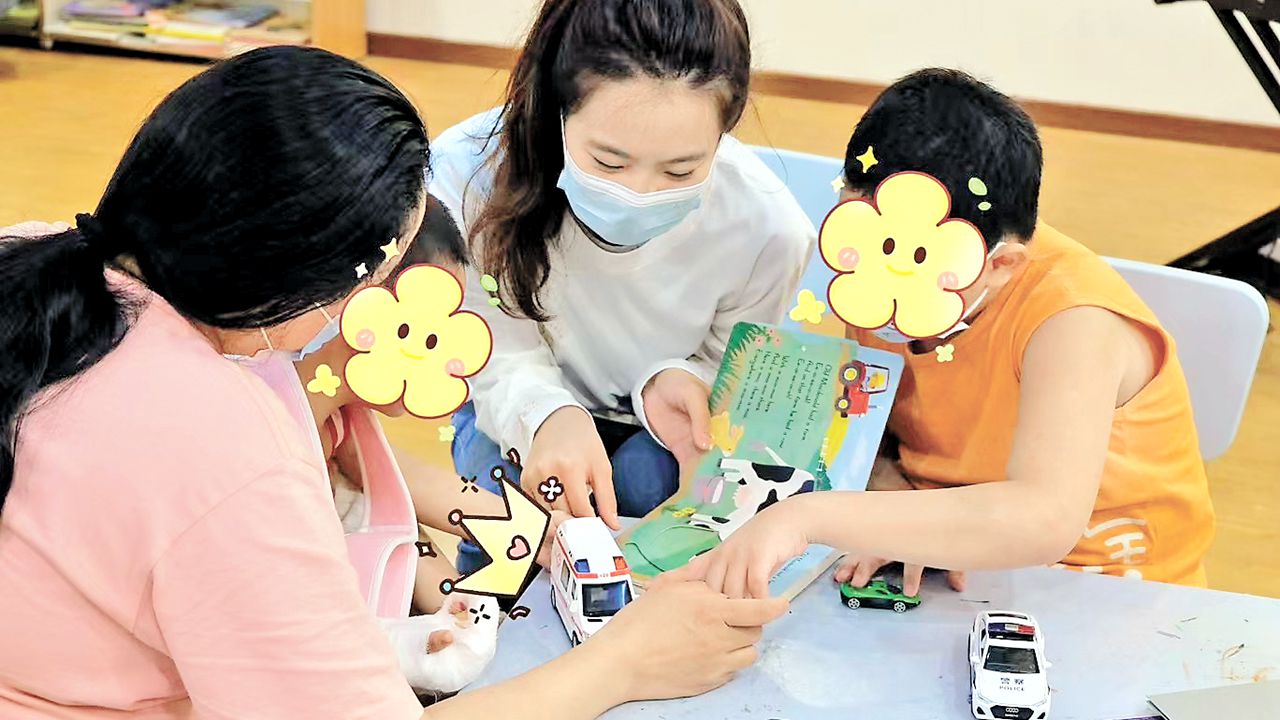
A Concordia Luminis member reads a picture book for young patients during an event at Shenzhen Children's Hospital on Oct. 13, 2024.
Pronin emphasized the importance of community engagement. “Doctors, lawyers, musicians — no profession exists in isolation. Individuals without community, for me, are nothing. I think community is very important. So it is very important for students to learn how to do community service and understand that their contributions not only benefit others but also shape their own growth,” added Pronin.
Pronin and Tian attribute the initiative’s success to strong institutional support. “Our university fosters interdisciplinary collaboration, which helped us find like-minded partners,” Tian explained.
“This inclusive environment, along with backing from the school and local government — including future plans for online donations — has been vital. Their involvement made us feel we were never alone in this effort. Rather, it’s the collective strength of an entire community driving this mission forward.”
Carefully curated
As Concordia Luminis reaches more diverse audiences, the performances evolve to meet their needs.
Pronin highlighted location as a key difference between traditional concerts and performances that are part of the initiative. “In traditional concerts, audiences come to us. Here, we go to them — bringing comfort, even if just for a moment.”
He compares the experience to a concert setting, where some attend to seek solace. “Those who can’t attend concerts deserve the same emotional relief. Music should be accessible to all,” he added.
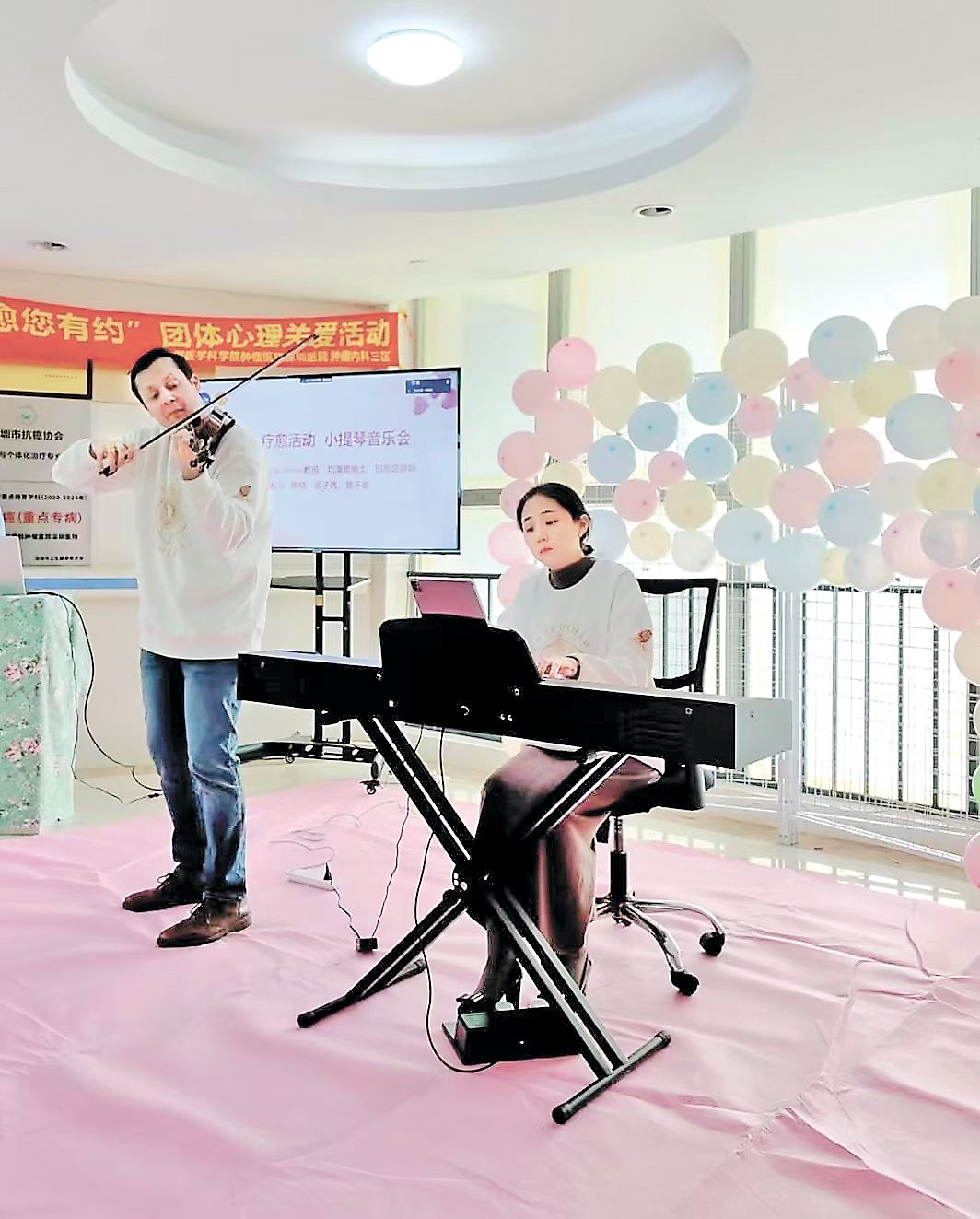
Stanislav Pronin (L) and Liu Xiaoya give a performance at the Cancer Hospital Chinese Academy of Medical Sciences, Shenzhen Center.
True to its name, the initiative seeks to inspire hope and enlightenment through music. “If someone tells me, ‘You gave me hope,’ that’s the highest fulfillment of my mission as a musician,” Pronin reflected.
In addition to music performances, the team enriches their visits with interactive activities like reading music-themed picture books with children and sharing stories behind the pieces they perform.
To uplift their audiences, Pronin and Tian carefully curate a blend of Chinese and Western music, prioritizing pieces that are hopeful and energizing. “We choose music from around the world to show that it transcends boundaries,” Tian explained. “Even without a shared language, we connect through these universal sounds.”
Pronin always opens performances with beloved Chinese melodies like “Molihua” (Jasmine Flower) before transitioning to short, uplifting Western classics like Bach’s solo compositions. “Music is a language deigned to bring us together. Even though I don’t know Chinese, we communicate and feel we are all part of the same global community,” he said.
Lasting impressions
Post-event feedback has been consistently heartfelt. Pronin shared a particularly poignant moment that occurred while he performed for three patients in a small treatment room.
“One woman was undergoing inhalation therapy for cancer. As I began playing a piece centered on the note D, I noticed her machine emitted the same pitch — a perfect, unexpected harmony. It was surreal yet profoundly moving — a connection I’d never experienced before where music and medicine seemed to speak the same language.”
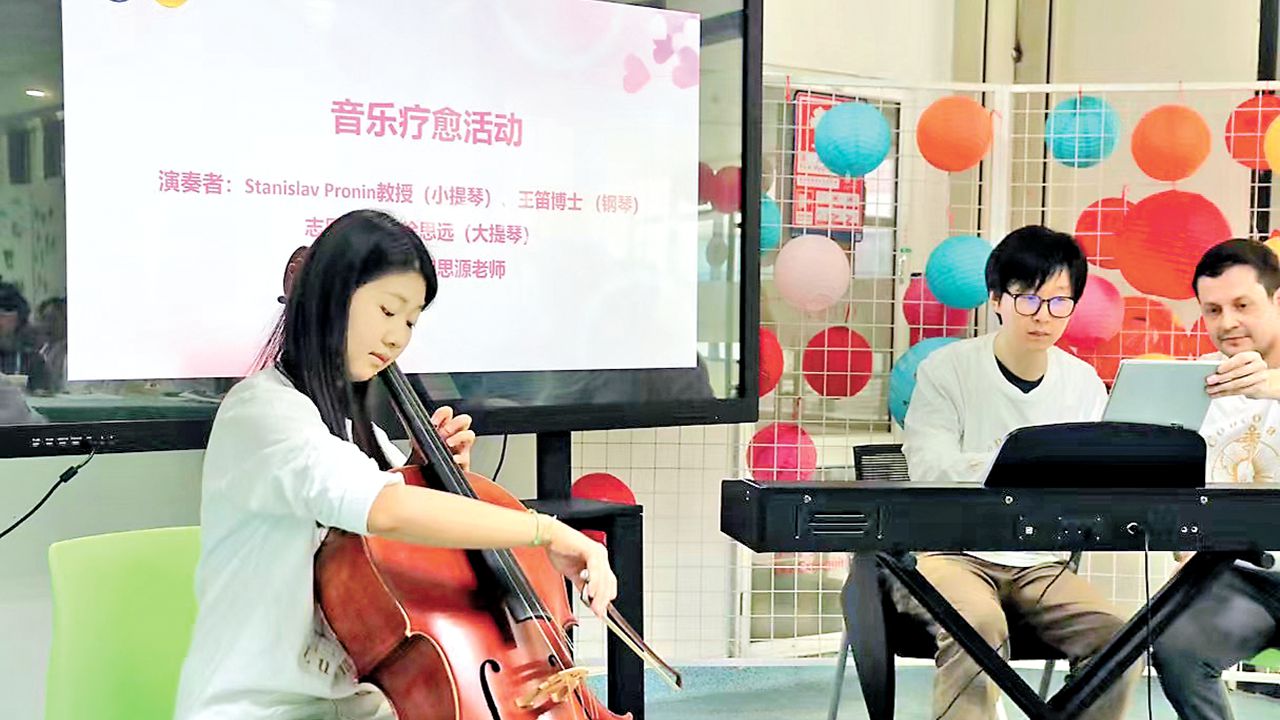
Stanislav Pronin (R) cooperates with two other performers during a Concordia Luminis event April 8, 2025.
He added, “When patients with advanced cancer tell me our music has brought them hope and made their lives better, it’s incredibly humbling.”
For Tian, these encounters carry profound significance. “Every patient is also someone’s mother, father, child, or partner. In those moments, music becomes more than therapy — it’s a spiritual connection, a way to crystallize love and tenderness into something eternal. That’s what makes this work so meaningful.”